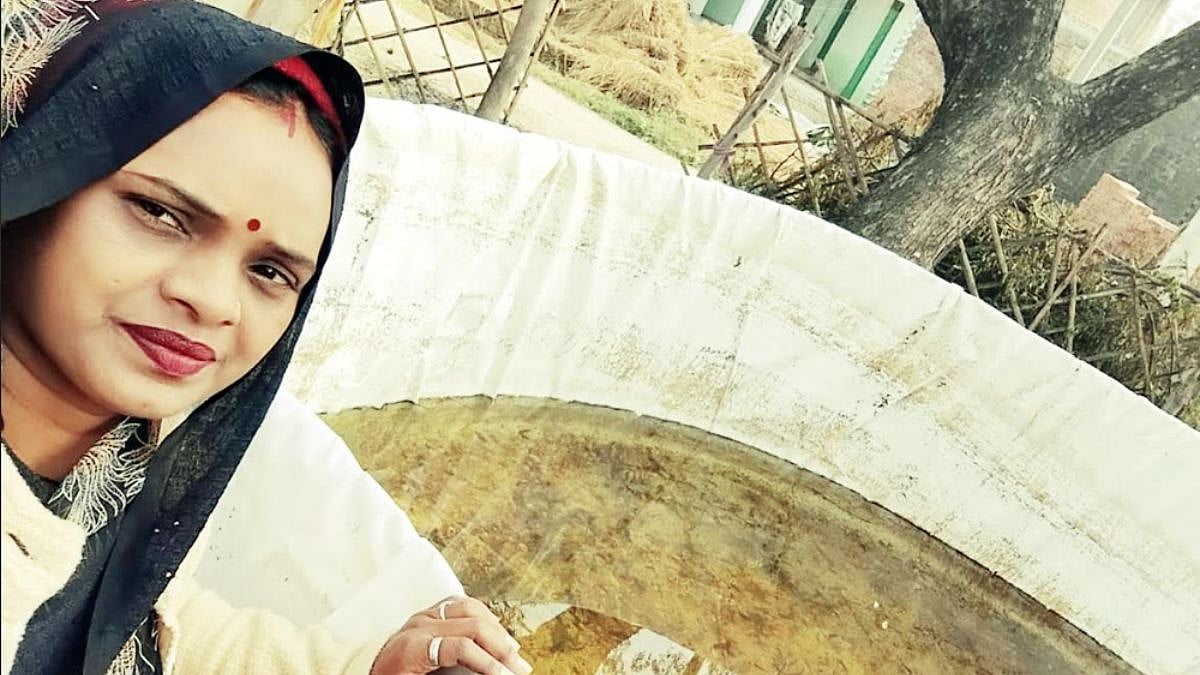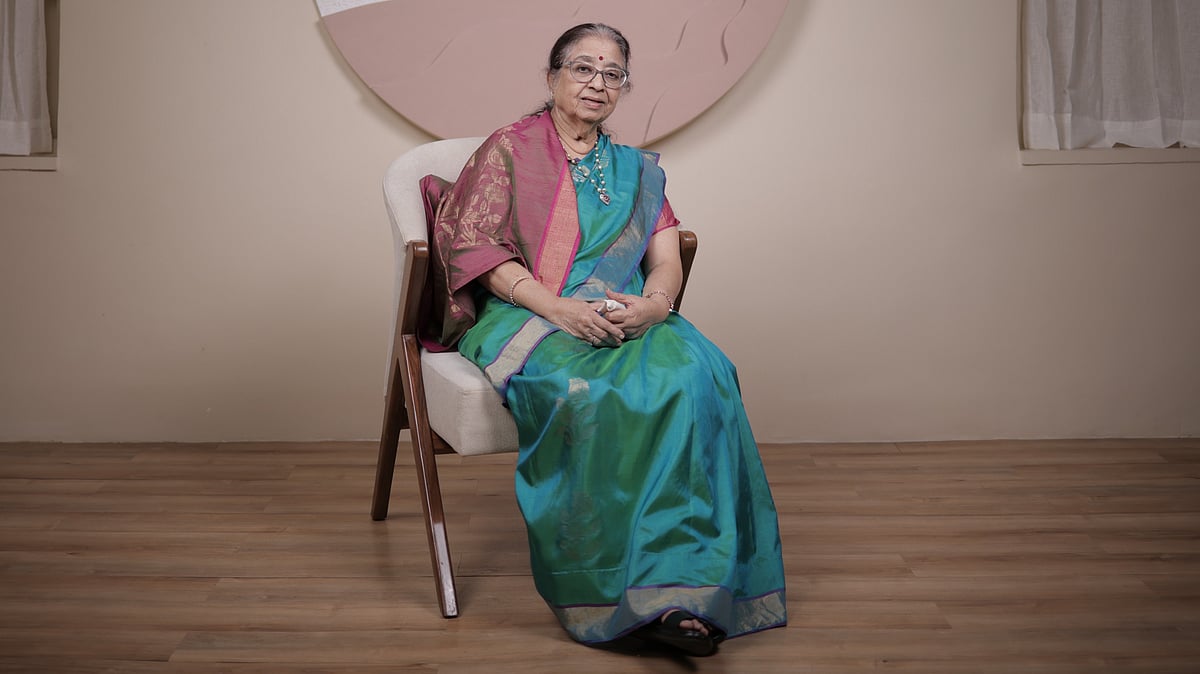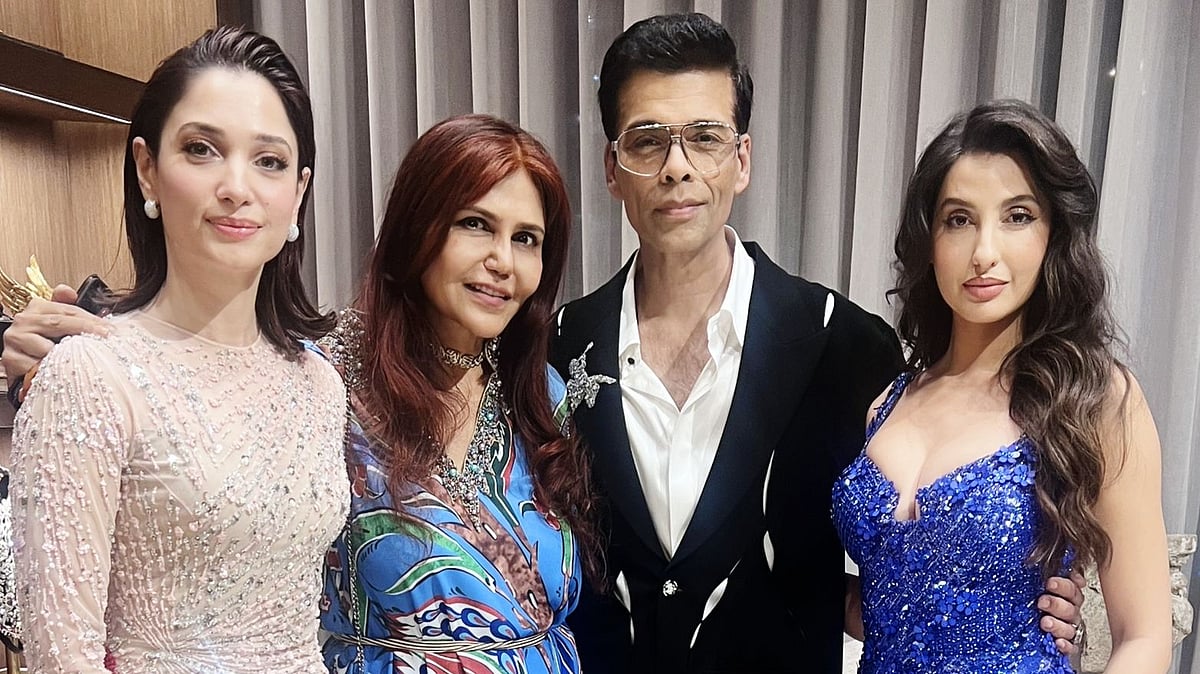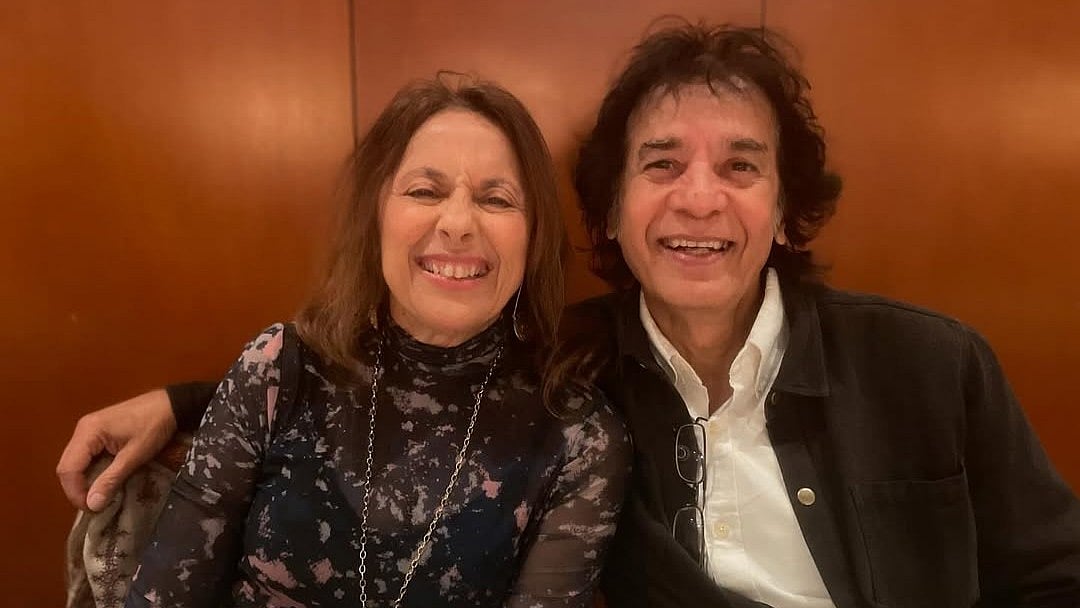In the bitter cold of Bundelkhand, Rampal, 35, has been out since morning speaking to patients of Lymphatic filariasis, colloquially known as elephantiasis, a neglected tropical disease. His mission? Not only to raise awareness about the Mass Drug Administration program, conducted annually on February 10 in endemic districts but also to instill belief in the efficacy of the drugs to protect people from the debilitating disease—a condition preventable but not curable. In his warm Bundelkhandi dialect, Rampal effortlessly navigates the stigma surrounding the disease, emphasizing the importance of treatment. "What message do you have for the younger generation in your community?" he asks 70-year-old Gayatri, who has endured the agonizing effects of this condition. "I am old; I only wish for everyone to take their medicine and avoid this suffering," she urges, encouraging her community to prioritize their health.
Although he moves around with a boom mic, Rampal is not a typical journalist. He represents the countless Community Radio broadcasters in filaria-endemic districts nationwide, committed to raising awareness about the MDA program. "There's hesitancy in taking medication because filarial symptoms may not manifest for years after infection. However, through field campaigns, door-to-door outreach, and radio broadcasts featuring patient testimonials, we highlight the consequences of non-compliance," explains Rampal, from Radio Lakshya in Madhya Pradesh, Niwari district.

Lymphatic Filaria Campaign by Radio Surabhi 90.4 |
Community radios have emerged as a powerful tool for fostering engagement and awareness in healthcare, owing to their ability to communicate in local languages and build trust within communities. Today, all 475 radio stations across India play a vital role in realizing the United Nations Sustainable Development Goal (SDG) related to "Good Health and Well-being," which promotes well-being for all individuals, regardless of age. These stations also actively support the objectives set by the Health Ministry, including targets related to immunization, maternal, newborn and child health, eliminating tuberculosis, addressing malnutrition, and other health indicators.
A notable example of Community Radio's impact is observed in Mewat, now renamed Nuh, a district in Haryana known for its socio-economic challenges. Here, the uptake of Ayushman Bharat or PM-JAY cards was initially sluggish. However, Radio Mewat personnel took proactive measures by organizing camps and airing regular awareness programs on their radio platform.
"People didn’t know that Ayushman cards were known as Chirayu cards in Haryana. We had to explain to them the benefits of having a PM-JAY card and also organized massive camps where people turned up in large numbers," shared Imran from Radio Mewat. The Radio Mewat team went above and beyond in their support efforts, spanning from facilitating transportation for the Ayushman Bharat team during camp organization, mobilizing communities, to assisting in the retrieval of cards from designated counters. Their dedication extended even to intricate matters such as ensuring internet connectivity in the area, as they carried dongles to facilitate a seamless registration process.

Imran from Radio Mewat recording an interview with a local farmer |
Through their concerted efforts, Community Radio stations like Radio Mewat have proven instrumental in facilitating access to essential healthcare services, bridging information gaps, and empowering communities to make informed decisions about their health. This impact was particularly pronounced during the COVID-19 pandemic, when these radio stations served as crucial lifelines for disseminating accurate information, combating misinformation, and providing support to vulnerable populations. “Community radios have been instrumental in fighting not one but two pandemics: one of coronavirus and the other of misinformation and fake news. CRs took it on themselves to clear the clutter,” says Archana Kapoor, Founder, Radio Mewat.
Imran Khan from Radio Mewat described how they adhered to social distancing guidelines by organizing themselves into groups of three within the office for three consecutive days. “The CR stations also addressed numerous questions raised by the community, such as ‘why there is a lockdown in the country’ and ‘how many cases have been reported in the area so far’,” said Imran.
Meanwhile in Ahmednagar, Maharashtra, 43-year-old Gayatri Mhaske from KVK Pravara 90.8 FM displayed exemplary courage in aiding her community's vaccination efforts. "In association with UNICEF, we were running an awareness campaign for booster vaccine doses during COVID," Gayatri recounts.

Nationwide Mass Drug Administration program commenced on February 10 under the supervision of the Union Secretary for Health & Family Welfare |
During the campaign, Gayatri received a live call on one of their programs from the Kopargaon block, revealing a concerning situation. An elderly couple, aged 72 and 68, who had tragically lost their son were yet to receive even the first dose of the vaccine, let alone the booster dose.
"They told us that they did not receive even the first dose of the vaccine, let alone the booster dose," Gayatri shares.
Challenging the block officer's claim of 100% vaccination coverage in the area, Gayatri insisted on investigating further. Upon inquiry, it became evident that there had been an oversight. Despite initial resistance from the authorities, Gayatri's persistence led to action.
"We insisted that there might have been an error and requested him to speak to the Kopargaon block officer," Gayatri recalls. Her proactive approach prompted the block officer to rectify the situation promptly. Not content with mere promises, Gayatri ensured tangible action.
"The entire team went there to vaccinate them. The block officer sent us the pictures," Gayatri recounts.
This was covered widely in the Marathi newspapers with the headline “Radio Bola, Prashaasan Hila,” recalls Gayatri.
Community Radios also serve as indispensable allies in the fight against TB. Employing a multifaceted approach that combines radio programming, community engagement, and innovative healthcare initiatives, they are helping the government meet its goal of TB-mukt bharat by 2025, which is also one of UN’s SDGs.

TB-mukt bharat campaign organised by Lalit Lokvani Radio community radio station in Uttar Pradesh |
“During the TB Mukt Bharat programme, apart from the radio programming, we distributed medicine kits in the schools, and led an awareness programme about the disease. This association and familiarity is very helpful in getting the message across,” said Chitra from Radio Lokvani 89.6 FM in Durg, Chattisgarh.
According to a World Health Organization (WHO) report, India witnessed a staggering 2.8 million (28.2 lakh) tuberculosis (TB) cases in 2022, boasting the highest number of TB cases globally for that year, with a case fatality ratio of 12 percent.
There are many unique health initiatives which are not confined to the stations but take health care into the homes of people of the population they are serving. “In partnership with us, the DM and CMO, have launched a healthcare initiative ‘OPD on Wheels’ aimed at providing essential medical services in underserved areas for a duration of one month. Through the dedicated efforts of healthcare professionals, the initiative focuses on identifying cases of tuberculosis through ‘Active Case Finding (ACF)’ while also raising awareness about government welfare schemes,” said Pooja from Agra ki Awaz Radio Station.
Finally, women's health choices and empowerment stand as significant focus areas for Community Radio Stations. These platforms have successfully shifted mindsets and fostered a safe, supportive environment where women can freely express themselves and exercise empowered choices.

Radio Dastak launch |
Farheen of Radio Mewat emphasizes that a woman's secondary social status, patriarchal norms and experiences of domestic violence, directly affect her health. “One of my programs, 'Hinsa Ko No,' focuses on domestic violence. When we began, women didn’t understand what 'hinsa' meant. Today, they grasp that it encompasses not only physical violence but also abuse, which directly impacts their mental and physical health. Earlier women used to attribute their migraine attacks to ‘gas’ but now they are able to articulate that stress and even verbal violence can have somatic manifestations in the form of headaches. Women in Mewat are learning to prioritize their rights and needs.”
Radio Mewat also plays a pivotal role in tackling immunization hesitancy in the deeply conservative Muslim-dominated area. Farheen highlights the trust and rapport people have developed for her programs and station, noting, “Women turn out in large numbers during our field visits or narrowcasting sessions.”
In addition, Farheen sheds light on the prevalent issue of anemia among women in Mewat, stating, “Mewat is known for its alarming anemia statistics among women of reproductive age. Poor diet, particularly among women with limited education, is a primary factor. In response, Radio Mewat launched 'Apna Swasthya, Apne Haath,' educating women about seasonal fruits and vegetables to improve their blood count and overall health.”
Mhaske from Maharashtra, echoes similar concerns about the pervasive problem of anemia among Indian women. She recalls, "In Rajuri village, we tested 165 women. Scores of them were found to be severely anemic." Recognizing the urgent need for intervention, Gayatri and her team facilitated a six-month-long medical treatment program for these women. Despite initial apprehension and resistance, Gayatri's empathetic approach and dedication yielded positive results. "When these women learnt about their anemic condition, they panicked and weren’t ready to come with us. But we persuaded them that when a family doctor neglected your health status for so long, it’s preferred to take free government medical aid," she adds.
The tireless efforts of grassroots workers like Gayatri and Farheen highlight the significant impact of community-led initiatives in addressing healthcare disparities, particularly among marginalized communities. "CRs voice the concerns not only of the majority but also of the minority, not just of the privileged but of the most marginalized. They don't merely disseminate information; they offer hope and assist in resolving the myriad problems of daily life. They uphold the trust of the people in their government and systems," stated Kapoor, who is also the founder of The Radio Festivals, an initiative that celebrates the contributions of grassroots workers every 13th February, coinciding with World Radio Day.









